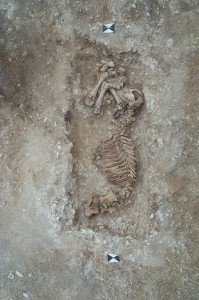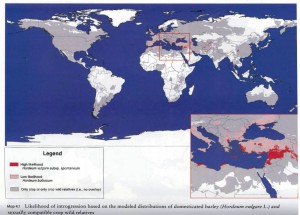From our occasional contributor Michael Kubisch.
Anyone who has seen Jurassic Park (and who hasn’t) will understand how this film has stirred the imagination by suggesting the possibility of bringing back species that have long gone extinct. Add to that the recent breakthroughs in our ability to retrieve and decipher genomes obtained from tissues of animals that have perished thousands of years ago and you can understand the excitement. Italian scientists now claim to have a rough draft of the genome of the aurochs, a wild bovid that roamed Europe until perhaps as late as the 17th century and which is depicted so beautifully in the cave paintings in Lascaux. With the genome map as a compass the Italians are convinced that they can now breed back the aurochs using contemporary cattle breeds as a starting point.
Such attempts are, of course, not new and there are bovids around that are thought to resemble the aurochs. But in the past such efforts were always fraught with a fair degree of uncertainty because they relied entirely on phenotypic information gleaned from drawings or written descriptions. Having actual genetic information of the aurochs takes that uncertainty out of the equation. Whether the Italians’ efforts will be more successful is hard to predict because they are based on the assumption that all of the genetic information of the aurochs can still be found somewhere in modern cattle. And it is far from clear whether that is the case. But even if it isn’t, having the aurochs genome at hand, it may one day be possible to make the necessary genetic changes to transform a modern cattle embryo into an aurochs embryo and have that embryo then carried to term in a modern cow. And if you can bring back the aurochs, it may quite well be possible to bring back animal breeds that have similarly vanished. Still sounds a bit like science fiction? Perhaps, but nobody ever thought you could clone a sheep.

